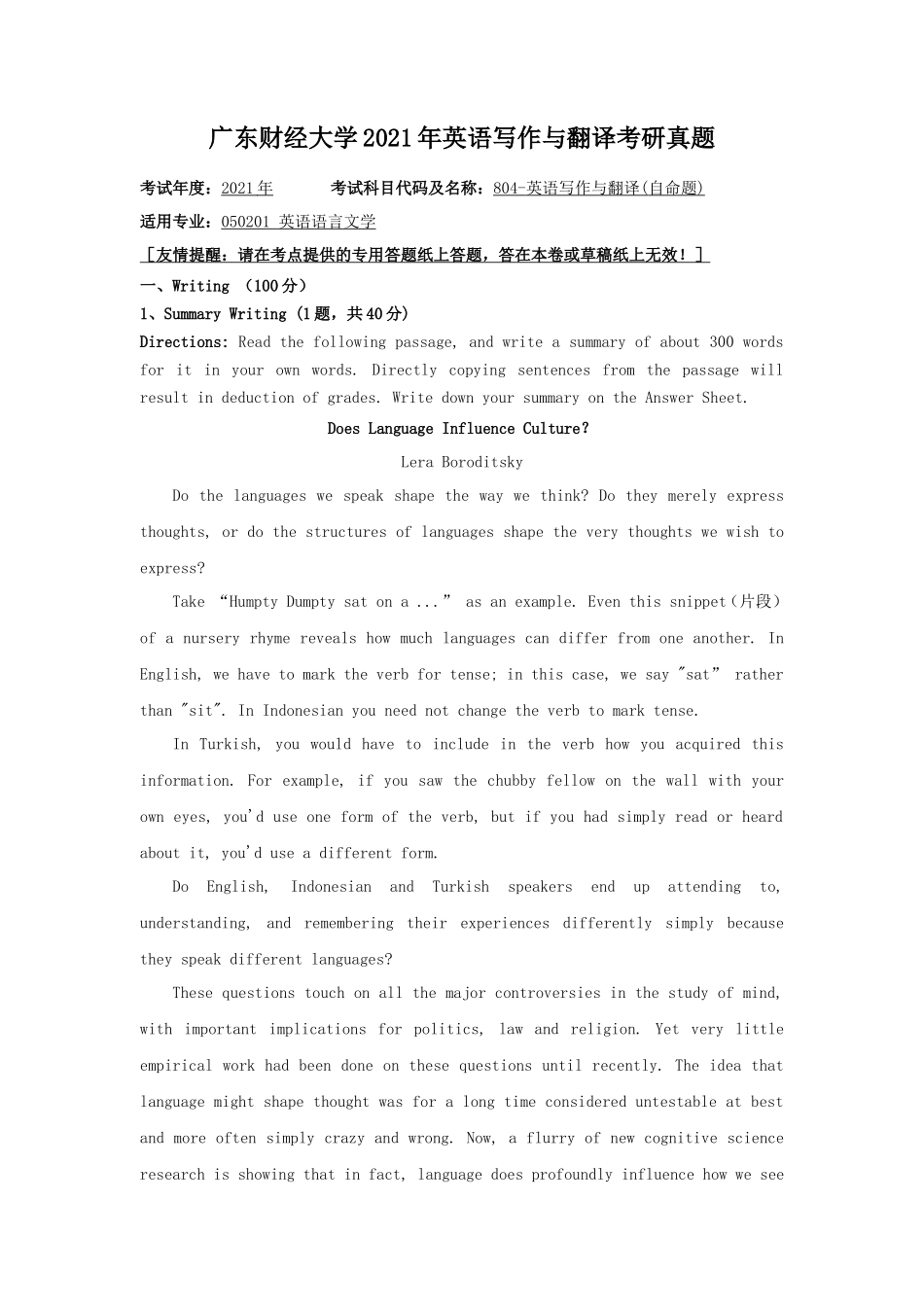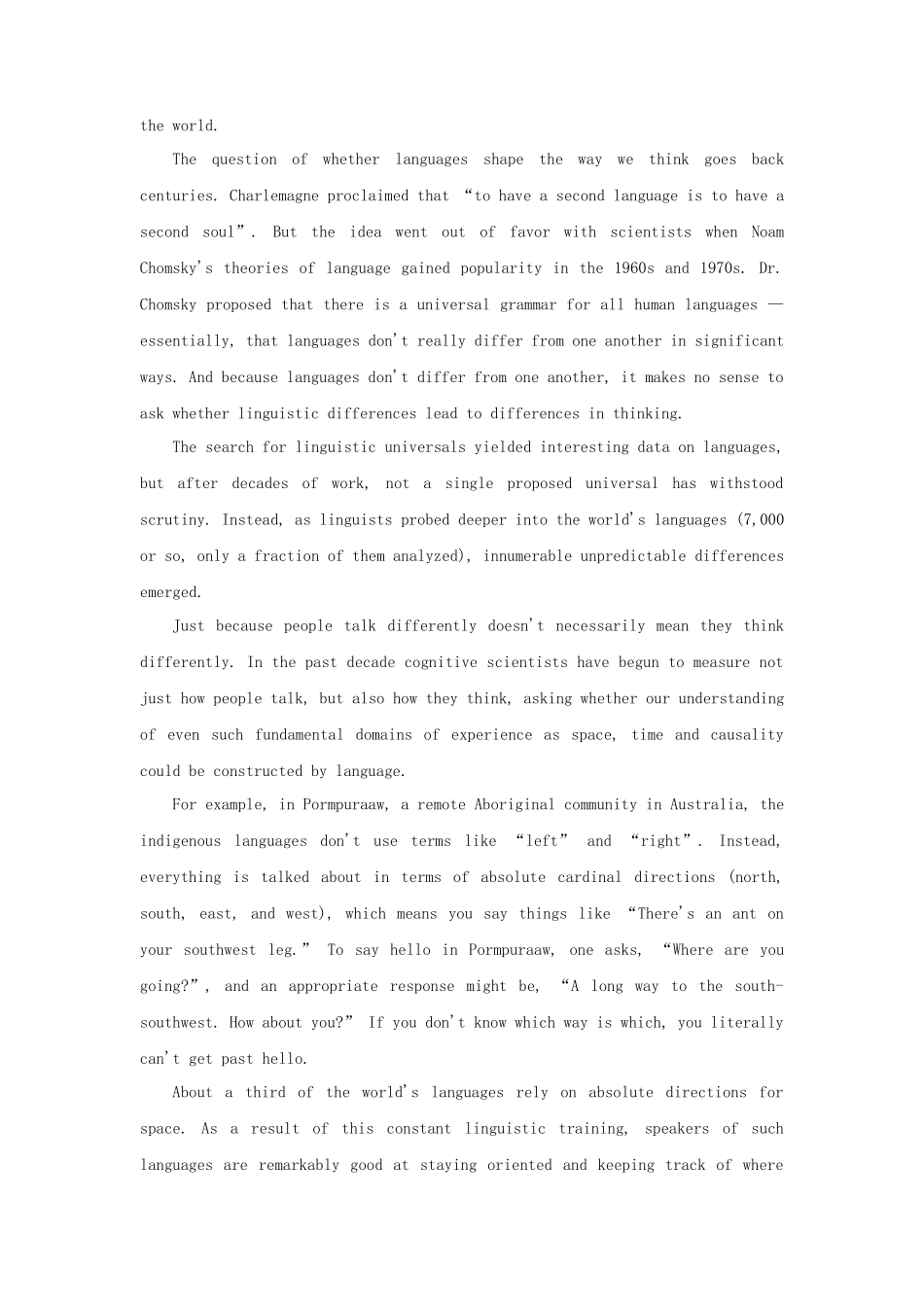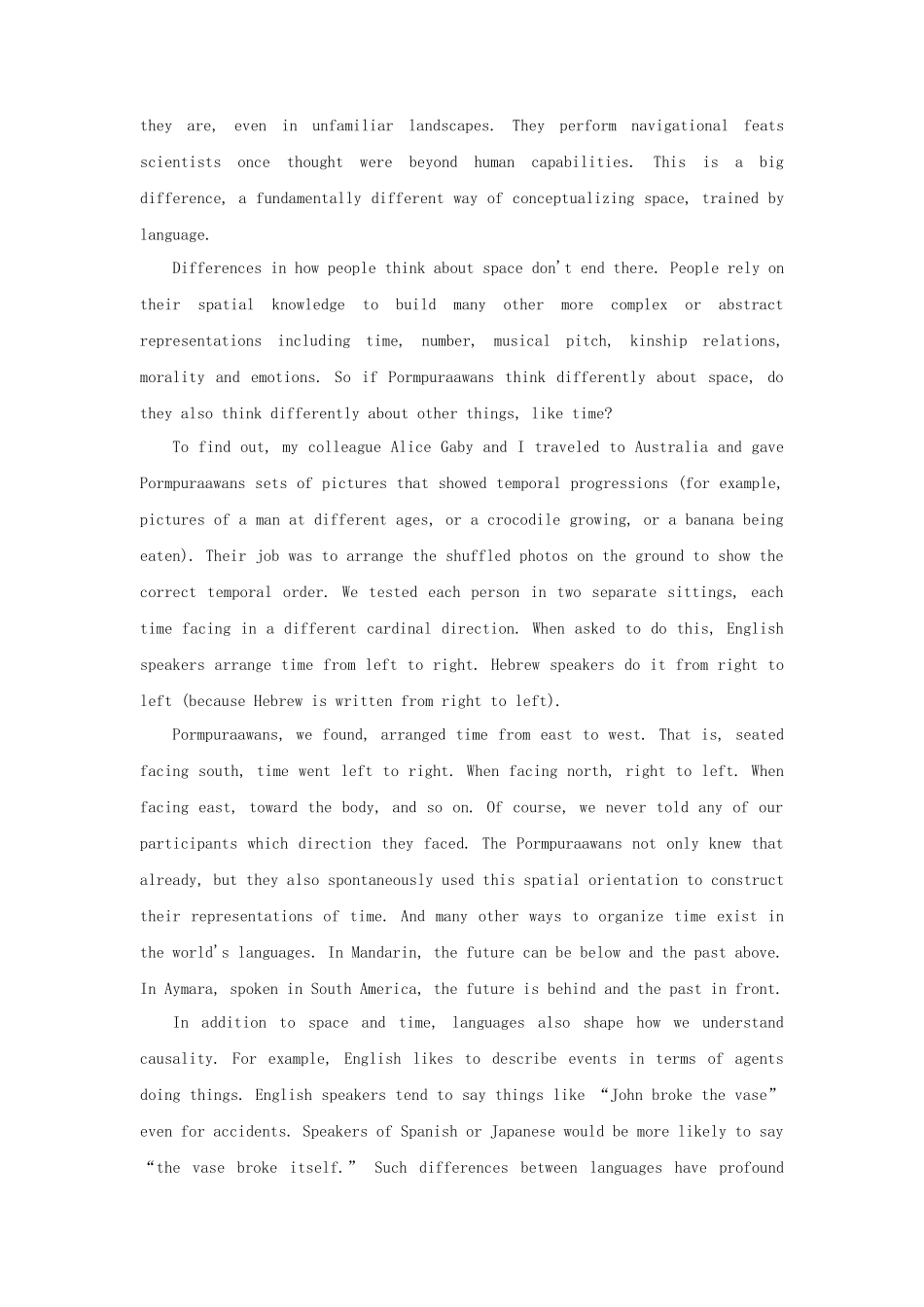广东财经大学 2021 年英语写作与翻译考研真题考试年度:2021 年 考试科目代码及名称:804- 英语写作与翻译 ( 自命题 ) 适用专业:050201 英语语言文学 [友情提醒:请在考点提供的专用答题纸上答题,答在本卷或草稿纸上无效!]一、Writing (100 分)1、Summary Writing (1 题,共 40 分)Directions: Read the following passage, and write a summary of about 300 words for it in your own words. Directly copying sentences from the passage will result in deduction of grades. Write down your summary on the Answer Sheet.Does Language Influence Culture?Lera BoroditskyDo the languages we speak shape the way we think? Do they merely express thoughts, or do the structures of languages shape the very thoughts we wish to express?Take “Humpty Dumpty sat on a ...” as an example. Even this snippet(片段) of a nursery rhyme reveals how much languages can differ from one another. In English, we have to mark the verb for tense; in this case, we say "sat” rather than "sit". In Indonesian you need not change the verb to mark tense.In Turkish, you would have to include in the verb how you acquired this information. For example, if you saw the chubby fellow on the wall with your own eyes, you'd use one form of the verb, but if you had simply read or heard about it, you'd use a different form.Do English, Indonesian and Turkish speakers end up attending to, understanding, and remembering their experiences differently simply because they speak different languages?These questions touch on all the major controversies in the study of mind, with important implications for politics, law and religion. Yet very little empirical work had been done on these questions until recently. The idea that language might shape thought was for a long time considered untestable at best and more often simply crazy and wrong. Now, a flurry of new cognitive science research is showing that in fact, language does profoundly influence how we see the world.The question of whether languages shape the way we think goes back centuries. Charlemagne proclaimed that “to have a second language is to have a second soul”. But the idea went out of favor with scientists when Noam Chomsky's theories of language gained popularity in the 1960s and 1970s. Dr. Chomsky proposed that there is a universal grammar for all human languages — essentially, that languages don't really differ from one another in significant ways. And because languages don't differ from one another, it makes no sense to ask whether linguistic differences lead to differences in thinking.The search for linguistic universals yielded interesting data on languages, but after decades of work, not a single proposed universal has withstood scrutiny. Instead, as linguists probed deeper into the world's languages (7,000 or so, only a fraction of them analyzed), innumerable unpredictable differences emerged.Just because people talk differently doesn't necessa...


